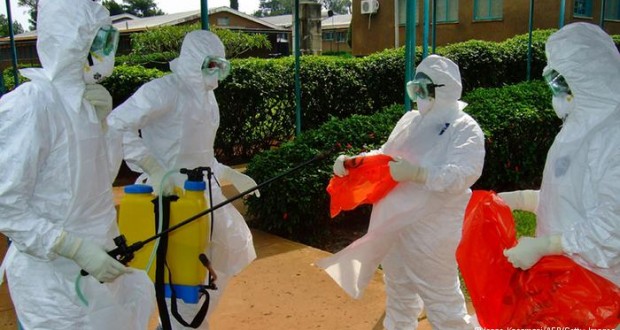Claim: Ghana declares new Ebola outbreak
Source: Opera News
Verdict: False
Researched by Gifty Tracy Aminu
A news article published on gh.opera.news claims Ghana has recorded 7 cases of the Ebola Virus Disease (EVD), with three of the victims currently dead.
The report claims a statement issued by the Ghana Health Service on February 15 confirmed the outbreak in Ghana.
Fact-Check
The Disease Surveillance Department of the Ghana Health Service has described the claim as “fake news.”
“Ghana has not recorded any confirmed case of ebola neither has the country recorded any suspected cases,” the health agency said via it’s verified Twitter handle on February 18.
Alert ‼️‼️‼️
Update on Ebola Outbreak.
Ghana has not recorded any confirmed case of ebola neither has the country recorded any suspected cases.
The news about Ebola is as a result of some cases detected and confirmed in Guinea, a country in the West African Sub Region.
— Disease Surveillance Dept_GHS (@DSD_GHS) February 18, 2021
“Opera News aggregates from various sources without verifying whether the story is true or not, more like automated aggregation. They serve these articles via mobile phones that have their apps installed,” a Software Engineer based in Accra, Sosthenes Kwame Boame said in an interview with GhanaFact.
Meanwhile, nowhere in the Ghana Health Service statement referenced in the article published by Opera News does it confirm that Ghana has recorded cases of the Ebola Virus Disease (EVD).
Rather the statement signed by the Director-General of the Ghana Health Service, Dr Patrick Kuma-Aboagye sort to serve notice to various health institutions in Ghana to be on high alert following reports about the outbreak in Guinea.
The statement also provided information on preventive measures against the disease:
- Avoid contact with blood and body fluids of people who show any of the Ebola symptoms
- Practice hand hygiene: frequent handwashing with soap and under running water or use an alcohol-based hand sanitiser
- Do not handle items that may have come in contact with an infected person’s blood or body fluids
- Avoid contact with dead bodies, including participating in funeral or burial rituals of suspected or confirmed Ebola cases
- Avoid contact with animals or with raw or undercooked meat
- Do not handle bushmeat
- Seek medical care immediately if one develops a fever (body temperature 38°C or above) or other symptoms such as severe headache, fatigue, muscle pain, vomiting, diarrhoea, stomach pain, or unexplained bleeding or bruising
What is Ebola?
The Ebola Virus Disease is a severe, often fatal illness in humans caused by the Ebola virus. The virus is transmitted to people from wild animals and spreads in the human population through human-to-human transmission. It can be transmitted through contact with body fluids of a person infected with the virus.
On February 14, 2021, Health authorities in Guinea declared an outbreak of Ebola in the rural community of Gouéké in N’Zerekore prefecture, marking the first time the disease has been reported in the country since an outbreak ended in 2016.
So far Guinea has recorded a total of 7 cases with 3 deaths, Africa Centres for Disease Control and Prevention (Africa CDC) has confirmed.




